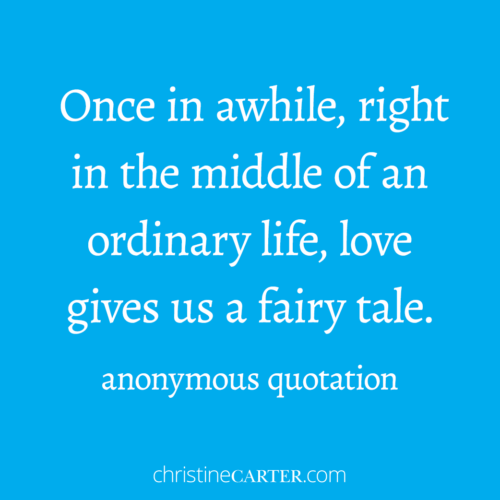
“Once in awhile, right in the middle of an ordinary life, love gives us a fairy tale.”
–anonymous quotation
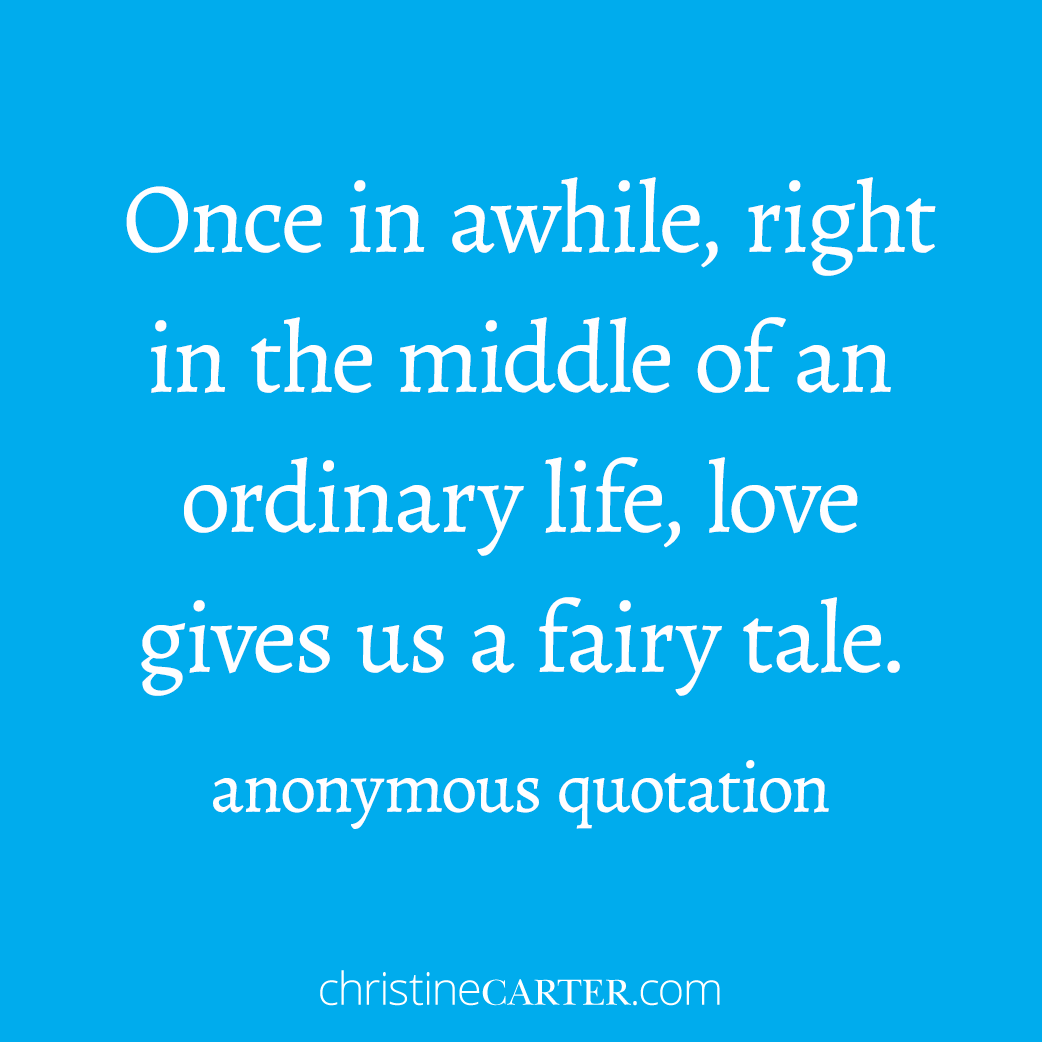

“Once in awhile, right in the middle of an ordinary life, love gives us a fairy tale.”
–anonymous quotation

Research shows that with a little elbow grease, romance can last a lifetime. This week, put some energy into your relationship. How can you best improve it?
This video is the 3rd in a series about the science of great relationships from The Raising Happiness Homestudy. Check out the rest of the Homestudy here.
![]() If you would like to download the audio version of this video to listen to in your car or on the go, click the link below.
If you would like to download the audio version of this video to listen to in your car or on the go, click the link below.
DOWNLOAD THE AUDIO VERSION HERE.
If you’d like to delve a little deeper, I hope you’ll join my Brave Over Perfect group coaching!
In our next theme, we’ll be talking about relationships and marriage, which are foundational for finding meaning and joy in our lives. Join us to practice some science-based ways to improve your relationships.
Group coaching is a highly effective alternative to individual coaching. We do three recorded calls per theme (cost is $20 per theme). Learn more or enroll now.


“There is only one happiness in life, to love and be loved.”
George Sand

Like it or not, the season of love is beginning! Already the stores are filled with cheesy red-and-pink Valentine-related stuff. Why not use this Valentine’s fluff as a nudge to forge deeper and more meaningful relationships? To that end, here’s a way to add something new to date night — or just a night out with a friend.
Below are the 36 questions that researcher Arthur Aron and his colleagues used in the lab to create profound feelings of being in love. The questions lead us to like each other more by engaging us in gradually escalating back-and-forth “personal self-disclosure.”
The original list had three parts, each part upping the vulnerability quotient. These questions are so good I didn’t want to use them all up in a single date-night, so I split them up, using two questions from each of Aron’s three different sections.
Don’t forget: How you respond when your partner is answering these questions is important. (Hint: turn your phone off and pay attention.)
Date Night 1
Date Night 2
Date Night 3
Date Night 4
Date Night 5
Date Night 6
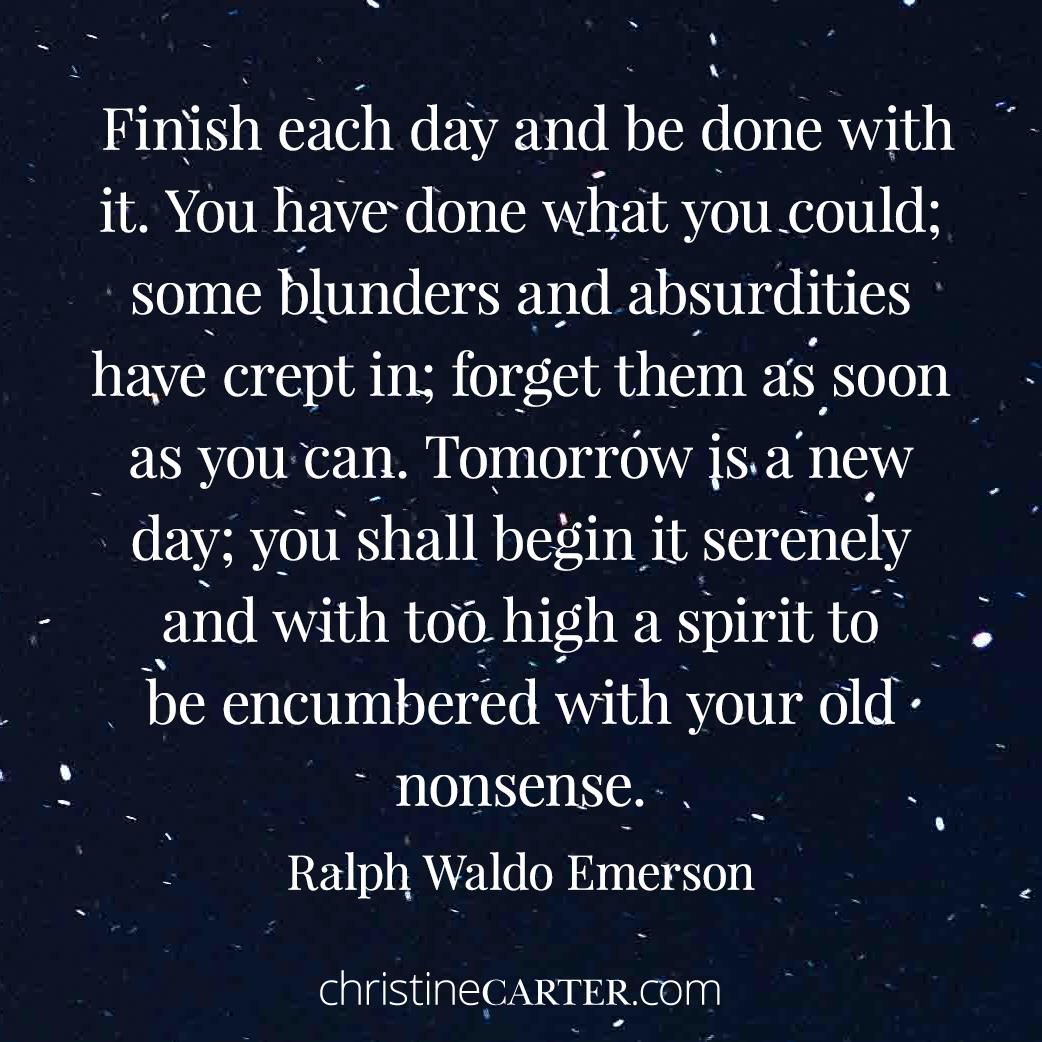
“Finish each day and be done with it. You have done what you could; some blunders and absurdities have crept in; forget them as soon as you can. Tomorrow is a new day; you shall begin it serenely and with too high a spirit to be encumbered with your old nonsense.”
–Ralph Waldo Emerson
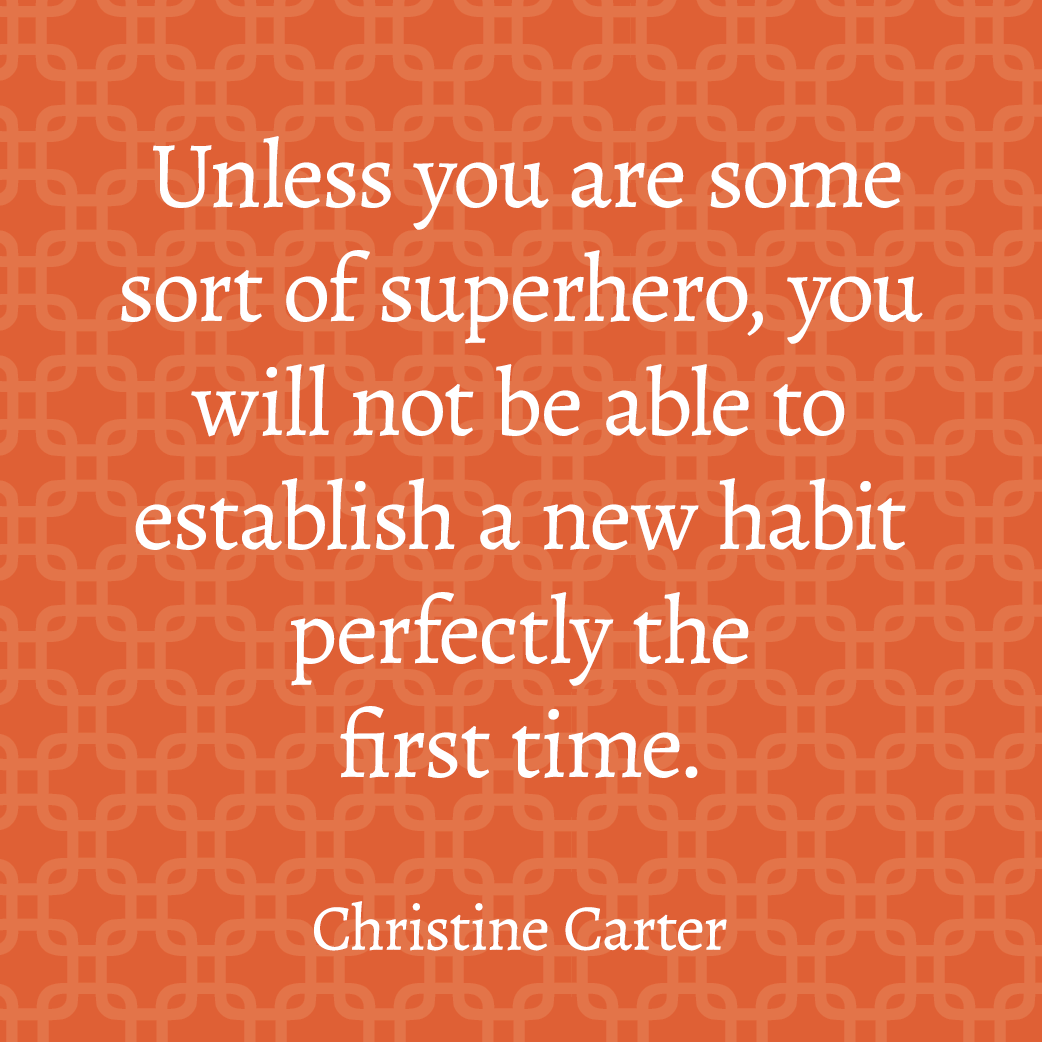
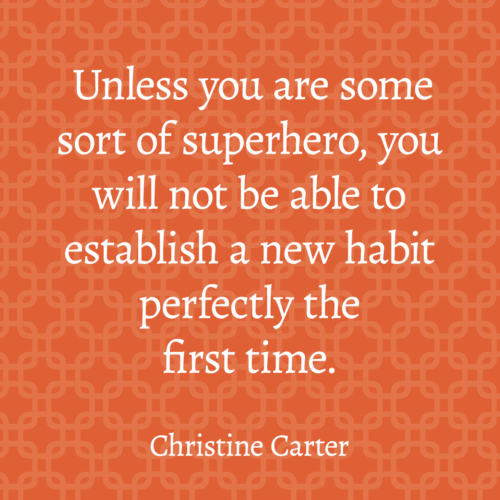
Unless you are some sort of superhero, you will not be able to establish a new habit perfectly the first time.
Christine Carter

Now that the kids are back in school, I’m thinking about what really leads to success—as well as happiness. Part 3 in a 3 part series. Click here to read Part 1 and here to read Part 2.
When I was graduating from college, I didn’t look for work that I felt passionate about because I assumed there were no good jobs that would involve my interests. My intention was to get the most prestigious, high-paying job I could. At that time, corporations recruited on Ivy League campuses, and I interviewed for advertising and brand management jobs that seemed to fit my internship experiences and creativity.
I landed a prestigious and high-paying job in marketing management. Unfortunately, I hated the job. I didn’t feel like I was actually doing anything but clocking in, checking tasks off a list, and heading home. I started therapy for anxiety. I didn’t know who I was or what I wanted in life.
When I started studying the sociology of happiness six years later, my world was set ablaze. No one else particularly thought what I was doing was a great idea; one professor told me to “at least stop calling it happiness” if I was studying “subjective well-being,” because people were going to think that I was “not very smart.” After my struggle with anxiety in corporate America, I could have cared less what others thought of me. I paid no attention to what type of research was going to get me a tenured track position; I was too thrilled by all I was learning. I think it worked out pretty well for me.
And I’m not alone. In my first post in this series on grit and elite performance, I emphasize how success requires a whole lot of practice, which can often be unpleasurable. Yet the consistent and deliberate practice of elite performers is nearly always fueled by an innate interest in what they’re doing.
In other words, passion is a core component of grit.
Research convincingly shows that when we perceive a child as being innately talented or gifted, or as showing great promise for something, what we are really perceiving is interest, not talent. A four-year-old who pretends to play the violin with a stick and demonstrates an unusual interest in classical music does, indeed, show promise as a violinist. She does not, however, show talent yet. Her interest in the music at such an early age may stimulate a lot of things that lead her to virtuosity, like early music instruction and parents who encourage her to practice deliberately and consistently. But early interest is not the same as early achievement. As we saw in the first post in this series, achievement takes both effort and skill, neither of which the four-year-old has had enough time to develop.
Here’s the bottom line: The practice and effort that leads to success and happiness over the long run is fueled by intrinsic desire, not hard-driving parents or social expectations. In fact, my passion for the science of happiness probably developed better—and my chances for success increased—because there was no one pushing me to achieve.
Falling down
So passion is one more thing—in addition to rigorous practice and strategic resting—that elite performers have in common. All that passion comes in especially handy when we consider another important ingredient to success: failure.
Elite performers turn adversity into success. Most greats don’t just pile up one achievement after the next. Failure is a key part of growth and, eventually, elite performance: J.K. Rowling’s first Harry Potter book was rejected by 12 publishers (and before she even wrote the book she suffered a stream of potentially devastating personal failures). Michael Jordon was cut from his high school basketball team. Abraham Lincoln, probably the most famous example of failure contributing to success, suffered a series of lost elections (along with some notable successes) before he went on to become one of our greatest presidents.
Consider that 75 percent of all people experience some form of trauma in life, and about 20 percent of all people are likely to experience a traumatic life-event within a given year. So the odds are good that our lives aren’t going to be free from pain and suffering, no matter how well-off or well-positioned we are. (That said, socioeconomic status does matter; while wealth doesn’t insure us against many disasters, it does make many types of adverse life-events fewer and farther between.)
Since adversity in life is a given, our success and happiness depend on our ability not just to cope with it but to actually grow because of it. Professionally, we have the greatest potential to grow when we challenge ourselves in our field just beyond our comfort zone. This means risking fear, embarrassment, errors, or even full-blown failure. And it means gaining new skills and abilities that contribute to our greater mastery and success in the future.
Because grit is a combination of persistence and passion, adversity plays a significant role in helping us develop both of those qualities. Interestingly, a vast body of scientific research shows that the stress we experience as a result of adversity—and how we respond to that stress—tends to predict how much we will benefit from it. The people who report the most growth following hardship are notthe people who are entirely stress-resistant in the face of adversity. Instead, the people who grow the most are actually the ones who are a little “shaken up,” and even exhibit a degree of posttraumatic stress. So if we don’t feel some stress in the face of a difficult situation, odds are we won’t grow from it.
Failure—and adversity in general—is life’s great teacher. While there might not be anything good in misfortune, as Viktor Frankl wisely reminds us, it is often possible to wrench something good out of misfortune. We know that adverse life-events—a plane crash, a terrorist bombing, breast cancer—can trigger depression, anxiety, and posttraumatic stress syndrome. But what most of us don’t realize is that posttraumatic growth, as researchers call it, can also awaken us to new strength and wisdom. Misfortune—even tragedy—has the potential to give our lives new meaning and a new sense of purpose, and in this way, adversity also contributes to the passion part of the grit equation.
Stephen Joseph, a preeminent expert on posttraumatic growth and the author of What Doesn’t Kill Us, puts it like this: “Adversity, like the grit that creates the pearl, is often what propels people to become more true to themselves, take on new challenges, and view life from a wider perspective.”
Read Part 1 of this series here.
Read Part 2 of this series here.
 If you like this series of posts, I think you’ll love my book The New Adolescence. Kids today are growing up in an entirely new world, and this has huge implications for our parenting. I am passionate about getting the word out about how we can help teenagers today. Please help me spread the word! Learn more here.
If you like this series of posts, I think you’ll love my book The New Adolescence. Kids today are growing up in an entirely new world, and this has huge implications for our parenting. I am passionate about getting the word out about how we can help teenagers today. Please help me spread the word! Learn more here.

We all understand that when we first attempt to drive a car or ride a bike, we’ll make mistakes. Behavior change is no different; it’s a process of slipping, learning from the mistake, and trying again.”
— John C. Norcross, Changeology
Unless you are some sort of superhero, you will not be able to establish a new habit perfectly the first time. Research indicates that 88 percent of people have failed to keep a new resolution. In my experience as a human being and a coach, 100 percent of people trying to change themselves lapse back to their old selves at least some of the time. So what to do if you’re struggling?
1. Don’t get too emotional about your slip or succumb to self-criticism. Instead, forgive yourself. Remind yourself that lapses are part of the process, and that feeling guilty or bad about your behavior will not increase your future success.
2. Figure out what the problem is. This may be blazingly obvious, but in order to do better tomorrow, you’ll need to know what is causing your trip-ups. What temptation can you remove? Were you stressed or tired or hungry–and if so, how can you prevent that the next time? Figure it out, and make a specific plan for what to do if you find yourself in a similar situation again. What will you do differently? What have you learned from your slip?
3. Beware the “What the Hell” effect. Say you’ve sworn not to check your email before breakfast, but you’ve been online since your alarm went off…three hours ago. You’re now at risk for what researchers formally call the Abstinence Violation Effect (AVE) and jokingly call the “What the Hell” effect. If you’ve already blown your plan today, why not go hog wild? What the hell–you can begin again tomorrow, right? Wrong. The more damage you do during your binge, the more likely you are to slip again the next day, and the less confidence you’ll have in yourself that you can change. So as soon as you notice you’ve slipped, go back to your plan. Double down, friends, double down.
4. Rededicate yourself to your resolution (now, in this instant, not tomorrow). Why do you want to make the changes that you do? How will you benefit? Do a little deep breathing and calm contemplation of your goals.
5. Above all, comfort yourself. To boost follow-through on our good intentions, we need to feel safe and secure. When we are stressed, our brain tries to rescue us by activating our dopamine systems. A dopamine rush makes temptations more tempting. Think of this as your brain pushing you toward a comfort item . . . like the snooze button instead of the morning jog, onion rings instead of mixed greens, or that easy taxi to work rather than the less-than-comfortable urban bike ride. So sometimes the best thing that we can do to help ourselves unplug is to preemptively comfort ourselves in healthy ways. What makes you feel safe and secure–and doesn’t sabotage your goals? Perhaps you need to seek out a hug or take a walk outside.
What are you struggling with? Post a comment and I’ll try to help!

Do you work around the clock, just because you can?
If so, you aren’t alone. These days we check our smartphones (and laptops) constantly to abate our anxiety that we are missing something. Are we supposed to be responding to something urgent at work? What if someone called about something really important? Constant device checking looks a lot like an addiction (or obsessive-compulsive disorder). One study found that many people respond to “phantom phone vibrations”—they think they feel their phone vibrating even when it isn’t.
And even if we aren’t addicted or don’t check our emails and texts and feeds compulsively, often our mental health is still, in fact, at stake. Certainly our productivity and satisfaction with life are. For example, Harvard University’s Leslie Perlow’s intervention with the Boston Consulting Group executives was nothing short of transformative. She required that participants establish “Predictable Time Off” (PTO)—time when they would not check their email or work remotely from, say, the family dinner table.
Work satisfaction and, ironically, productivity shot up for the BCG executives, dramatically. Before establishing PTO, only 27 percent were excited to start work in the morning. After PTO, 51 percent were. Before, less than half were satisfied with their job, but after, nearly three-quarters were. Satisfaction with work-life balance went from 38 percent to 54 percent. And people found their work to be more collaborative, efficient, and effective; for example, just establishing PTO made 91 percent of the consultants rate their team as collaborative, up from 76 percent when they were checking their email at all hours of the day and night.
Unplugging isn’t easy, but it is necessary. Share on XPerlow explains:
Busy managers and professionals tend to amplify—through their own actions and interactions—the inevitable pressures of their jobs, making their own and their colleagues’ lives more intense, more overwhelming, more demanding, and less fulfilling than they need to be. The result of this vicious cycle is that the work process ends up being less effective and efficient than it could be. The power of PTO is that it breaks this cycle, mitigating the pressure, freeing individuals to spend time in ways that are more desirable for themselves personally and for the work process.
A lot. Specifically, we need to carve out times and spaces that are insulated from checking behaviors. This can be very, very hard when it doesn’t come as a company mandate, as it did at the Boston Consulting Group. But even though it might be difficult, and requires some courage, I promise, it’s worth doing.
This post is from a series about gaining control of your time, attention and energy in my online course, Science of Finding Flow, an online course I created as a companion to my book The Sweet Spot: How to Accomplish More by Doing Less.


“I am larger, better than I thought, I did not know I held so much goodness.”
—Walt Whitman, Song of the Open Road